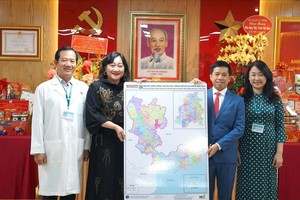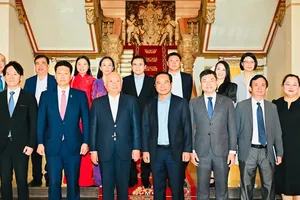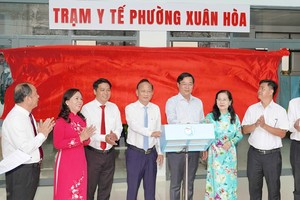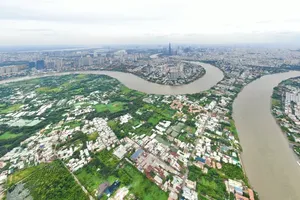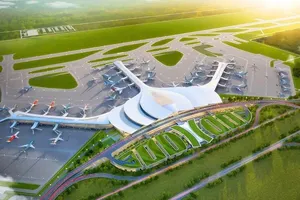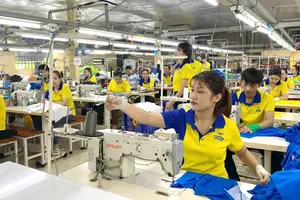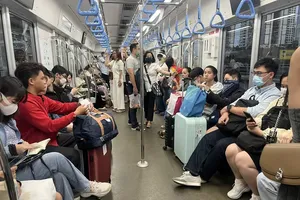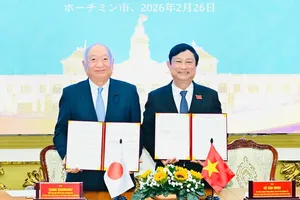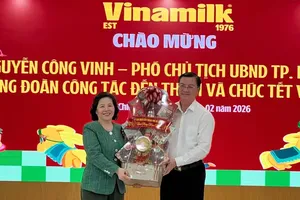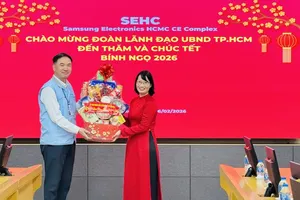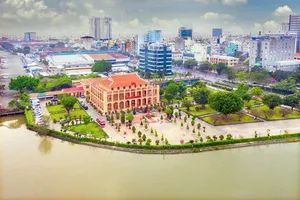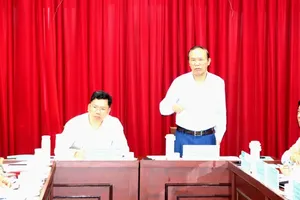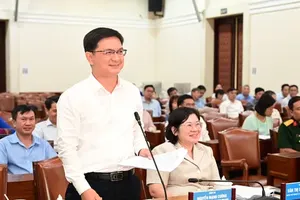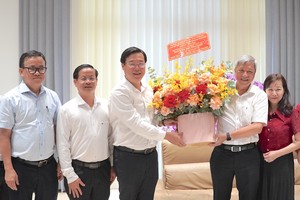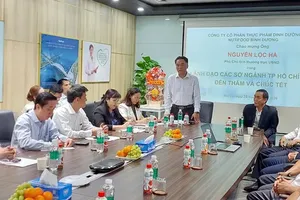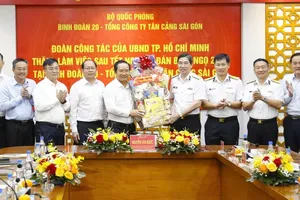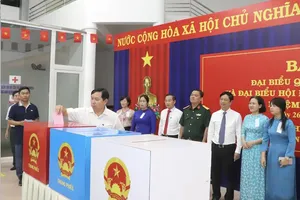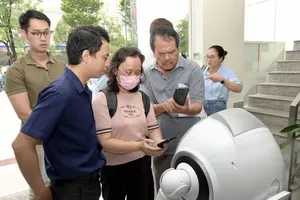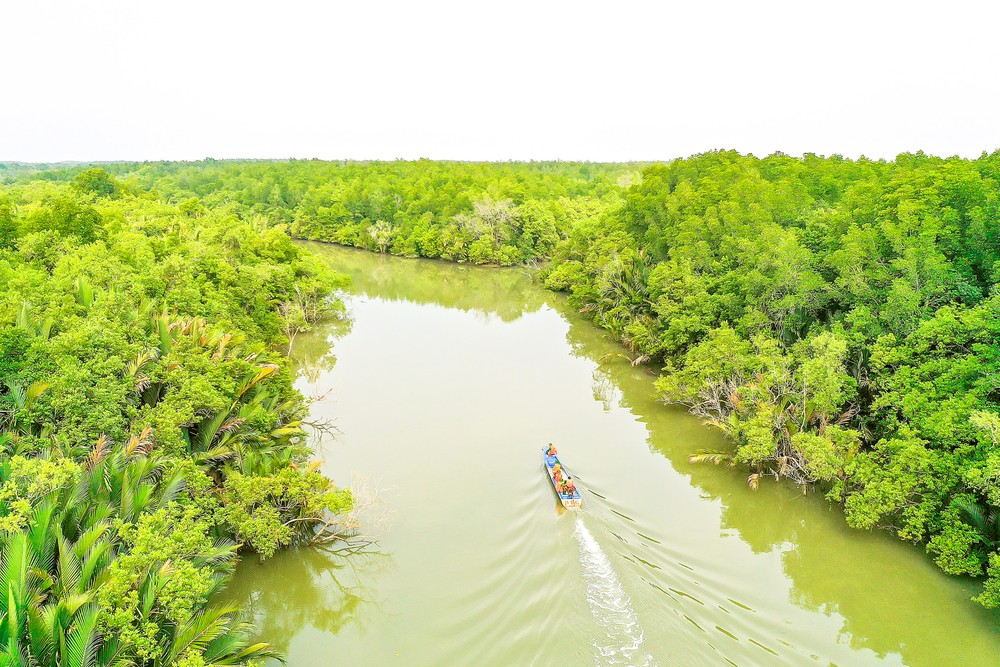
The southern metropolis is working with central agencies to develop pilot policies for carbon credit exchange and offsetting mechanisms and using rooftops as public assets to install rooftop solar power according to the National Assembly-approved Resolution No. 98 /2023/QH15 on piloting a number of specific mechanisms and policies to develop Ho Chi Minh City (Resolution 98), .
The Resolution 98 allows the Ho Chi Minh City budget to enjoy all the revenue from carbon credit transactions while the municipal People's Council decided to use money from selling carbon offsets for programs and projects to respond to climate change, develop a green economy, digital economy, and circular economy in the city.
Currently, Ho Chi Minh City is urgently coordinating with ministries and central branches to develop a Government decree guiding the implementation of this policy.
Talking about the carbon credit exchange and offsetting mechanism, Director of the University of Economics Ho Chi Minh City (UEH) Professor Su Dinh Thanh assessed that the carbon market is a green fiscal tool that simultaneously allows for reducing GHG emissions and combating climate change. The carbon market allows organizations to buy, sell, and exchange greenhouse gas emission quotas and a certain percentage of carbon credits with two types, including mandatory market and voluntary market.
Mandatory carbon markets work on a mandatory basis meanwhile, voluntary carbon markets work on a voluntary basis. The mandatory carbon market has helped reduce greenhouse gas emissions in the European Union by more than 40 percent since 2005 while the voluntary market allows individuals and organizations to buy and sell carbon credits to offset excess or unavoidable carbon emissions voluntarily.
Deputy Minister of Natural Resources and Environment Le Cong Thanh said that, in the current situation, international regulations on mandatory carbon credit transactions between countries are not strict. Therefore, in the immediate future, Vietnamese businesses can access the voluntary market at a certain rate to implement Vietnam's commitment to contribute to achieving CO2 emission reduction goals towards the net zero emission target ( net zero) by 2050.
In Ho Chi Minh City, Can Gio outlying district is expected to become a pioneer locality in achieving the net zero goal by 2035. Chairman of Can Gio District People's Committee Nguyen Van Hong said that to realize this goal, the district has been studying circular economic development models. In particular, the district builds a project to comprehensively develop all types of marine economic trade and services with the orientation to a blue marine economy while formulating a plan to develop organic agriculture.
Can Gio District also coordinates with the Department of Tourism of Ho Chi Minh City to develop community tourism oriented towards a high-quality eco-tourism model. The district will increase communication to raise community awareness about the green Can Gio program including plans to handle plastic bottles and recycle plastic items for conversion of green solutions into carbon credits. The city also develops green transportation and builds a model of sustainable, smart ecological urban development and public transportation-oriented development (TOD);. district administration will encourage inhabitants to use environmentally friendly electric vehicles. The district also proposed piloting rooftop solar power for both public and private offices and salt beaches.
Green and sustainable development orientation has been implemented by Ho Chi Minh City throughout the years. In meetings with leaders of Can Gio district, Chairman of Ho Chi Minh City People's Committee Phan Van Mai repeatedly asked the district to focus on solutions to develop a green economy, green transportation, and form green residential areas. He emphasized the use of electric vehicles in Can Gio.
Recently, the Ho Chi Minh City Institute for Development Studies (HIDS) proposed that the City People's Committee submit to the municipal People's Council to develop a resolution on support, encouragement, incentive policies and roadmaps for individuals and households to convert vehicles from using fossil fuels to using clean and renewable energy sources such as solar, wind, hydroelectric energy. This is a specific step to realize the goal of building an action program for a green Can Gio, controlling emissions and contributing to helping Can Gio achieve the net zero target - cutting carbon emissions to a small amount of residual emissions.
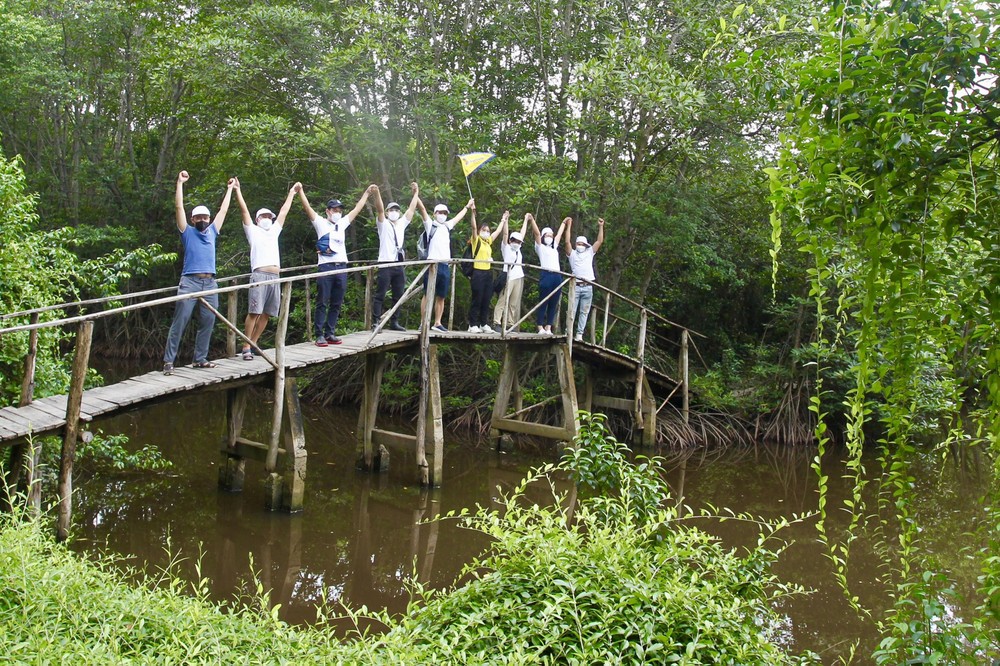
In addition to permission to use money from selling carbon credits, the Resolution 98 allows Ho Chi Minh City to use rooftops as public property to pilot the installation of solar power systems to provide electricity for headquarters operations. According to the Department of Industry and Trade of Ho Chi Minh City, the city has about 2,619 buildings - public organizations - that are eligible to install rooftop solar power. Ho Chi Minh City also set goals to strive for 50 percent of state-owned office buildings and 50 percent of households in residential quarters to use rooftop solar power by 2030. Furthermore, by the end of 2025, all street lights will be LED lights.
Recently, at the second conference of the Steering Committee to implement the Resolution 98, Deputy Minister of Industry and Trade Phan Thi Thang said that the Ministry of Industry and Trade is building a policy to encourage the development of rooftop solar power and direct electricity trading. The Ministry has sent a document to ministries and agencies to collect opinions on mechanisms and policies. At the conference, Prime Minister Pham Minh Chinh who is the head of the Steering Committee to implement the Resolution 98 asked the Ministry of Industry and Trade to complete the decree on direct electricity trading in the second quarter of 2024.
The Prime Minister emphasized having particular solutions for the southern largest city in implementing the Resolution 98 so that agencies and businesses in the city can have conditions to install renewable energy equipment. Simultaneously, the PM encouraged ministries, agencies and investors to participate in renewable energy, because this is a common need of the country.
According to Chairman of Ho Chi Minh City People's Committee Phan Van Mai, the city has completed the strategic framework and is completing the policy framework for Ho Chi Minh City's green growth strategy to 2030 with a vision to 2050 to contribute to the implementation of net zero goal and low carbon emissions. Green energy transformation, green construction, and water resource management are high on the city’s list of priorities. Chairman Mai stressed that the Resolution 98 has opened up many opportunities for Ho Chi Minh City in green transformation. The city is working with the World Bank to research and implement many important contents, including rooftop solar power and carbon credits.
